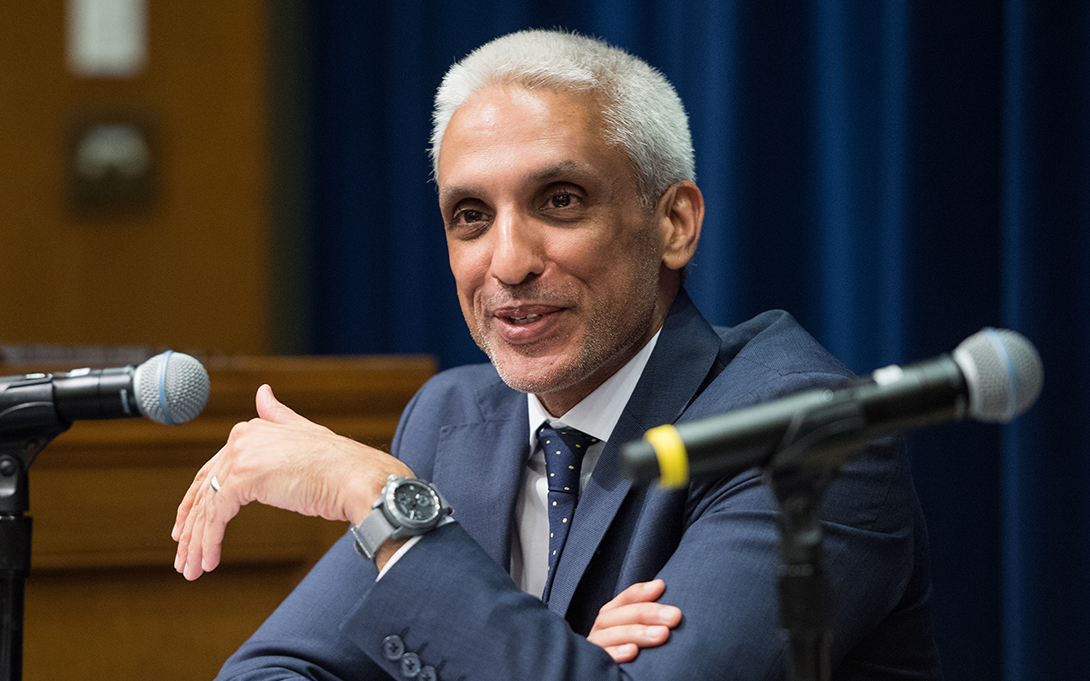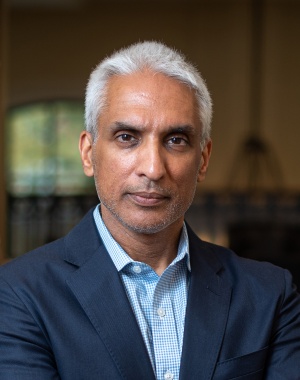
As the nation watched the prosecution in the impeachment trial of Donald Trump lay out a timeline for the causes and actual insurrection at the Capitol on January 6, Ford School Towsley Policymaker-in-Residence Javed Ali has been commenting on many of the aspects of that timeline.
As to the potential origins of the mob’s anger, Ali told Capital News Service, “The events at the Capitol didn’t happen in a vacuum. There were a lot of factors that brought us to Jan. 6.”
But Donald Trump was not the only one promoting white nationalism. The COVID-19 pandemic and the economic uncertainty that followed, combined with the government-mandated shutdowns and stay-at-home orders, scared and angered people, he said.
Ali said some militias involved in the insurrection came together long before 2020 but were radicalized by the culmination of the year’s events.
The struggle ahead, according to Ali, lies in the unique circumstances for the United States. “We’re also dealing with Americans who can have these views. That activity is protected under the Constitution.”
When the attack on the Capitol began, there was a breakdown in the security apparatus that allowed for the rioters to enter the building. Ali said to the Wall Street Journal “There was a series of breakdowns across multiple levels of the enterprise, and that’s what’s so disturbing. Twenty years after 9/11, that’s the most shocking part of it. These are mistakes that shouldn’t be happening in 2021.”
Ali told Fox 2 Detroit that people didn't show up in Washington to storm the Capitol but the mob mentality apparently took over. "A large majority of the people, from the data that's been revealed so far, appear to have to be in that part of the category: that they didn't necessarily arrive to the speech up with President Trump thinking that they were going to storm the Capitol and get inside the building - but once they went along with everybody else, things just started to fall into place in a very different way. Maybe it speaks to what happens when people are caught up in these mobs that can turn violent very quickly," he said.
Once inside the Capitol, many took selfies and posted them on social media, leading to family members and friends alerting police.
"In the aftermath of all these international terrorism cases that we would see, even people in the US, time and time again the family members, the friends would say the same thing: 'I saw something that seemed out of the ordinary, but I didn't know what it meant or didn't know what it was and I didn't really want to confront that person,'" Ali told CNN. "I think you're seeing the same phenomena play out here."
You can see the original articles on the links below:
- Fox 2 Detroit, February 11 - Michigan man took selfie inside U.S. Capitol during riot
- Wall Street Journal, February 8 - Capitol Riot Warnings Weren’t Acted On as System Failed
- Capital News Service, February 6 - White nationalism movement has long history in Michigan
- CNN, February 2 - When they spotted a familiar face at the Capitol riots, they reported it to authorities

